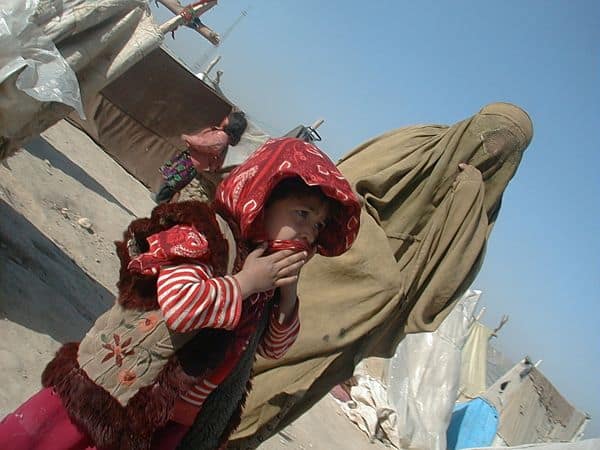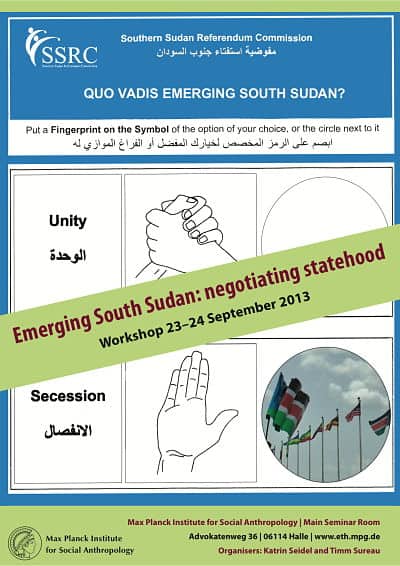My heart skips a beat, more than once. Finally, a conference in the one place I wanted to return to since my happy childhood years – a place in Asia I, as an ‘Africanist’ have not had professional opportunities to go to, nor as a PhD student with small children, had the resources to fly to for a holiday. In searching “political anthropology conference 2016” via Google, I am in disbelief and gleeful reading that the location of the “18th International conference on Political Anthropology” is none other than Hong Kong. The fragrant harbour. The world’s absolutely coolest city. The girl that was born in Hong Kong, now hidden deep inside under years of research on and in Uganda, soars with excitement. I am going home.
I immediately post the news on Facebook, adding after that the “topics of interest for submissions” are a bit vague:
- Anthropology and the human environment
- History of Political Anthropology
- Researches about Political Anthropology
- Anthropology and fields of Political Anthropology
- Archaeology and sustainability anthropology
- Ideas about race, culture and peoplehood
- Evolution, ecology, and environment
- Indigenous and minoritized groups
- Food, health, and society
- Identity, heritage, and globalization
- Sex, gender, and sexuality
Vague, yes. But I shrug it off with “whatever, it’s Hong Kong”, and rush home to care of my children.
The following morning, colleagues commented on my Facebook post expressing interest to also submit papers. At breakfast, I told my older son that if this works out, I’d take him with me. Once at the office, I took to writing an abstract, revelling in how perfect a place for a conference, as well as timing. The conference would take place in December 2016, just around the time I would be defending, thus it would be in parallel to announcing the results of my PhD thesis on mainline Christianity and politics in Northern Uganda.
250 words and a catchy “political anthropologicy” title. Done. Perfect.

The submission form was as one might expect, with detailed instructions on abstract length and style. The requirements were somewhat unusual, though I thought maybe things were done a bit differently at Hong Kong versus Northern Europe universities. To submit my abstract, I was required to register with a system agreeing that I “understand and accept terms and conditions, plagiarism and ethical policy, copyright transfer statement and Privacy and Legal Policy.”
Fired up about all the places I could visit after the official conference program had concluded, I didn’t bother to click the boring-looking links. I clicked to agree, my mind wandering with thoughts about skipping some of the program if it was not that great since it would be boring for my son to sit day-in-day-out playing on my phone as I listen to presentations.
I paste the title of my presentation in the submission form, my abstract, and quickly conjure “about four” key words. But before I click submit, “Welcome to the World Academy of Science, Engineering and Technology” flashes on my screen. It is an automatically generated e-mail from the conference organisers, and a faint smell of rotting fish begins to linger.
Huh? With a tremor of trepidation, I go to the conference website and start clicking around. The final program will be announced shortly, but there’s a list of names and universities belonging to the conference organising committee. The day before, I had wondered why I didn’t recognise any of the names. I reckoned the big-shots skirted around such meagre responsibilities, and as I’m not a real political anthropologist, just an ethnographically-oriented multidisciplinarian meddling with the stuff of political anthropology, it was no surprise I didn’t recognise the smaller shots.
Again, I resorted to Google and was relieved that the names were actually affiliated with universities. But why were they based in the psychology department? Or to be more precise why were they “powered by their passion for teaching life sciences”, as one of the listed scholars indicates on his website? Why was their research based in technology studies, or health information management and why on earth would these people be organising an anthropology conference?

This isn’t the conference of my dreams, on a dream topic, in a dream location. My heart sank.
It’s a hoax.
How dumb could I have been?
The conference claimed to create a special issue for the best papers and it occurred to me to search for its title: “Advances in Political Anthropology”. It wasn’t even a journal. Surely, had I not been so enthralled with the prospect of traveling to my dream city, I would have realised this hoax sooner.
However, I am not the only one who has been fooled by these false conference averts. In 2013, Martha Harbison posted on the emersion of a new genre of academic hoaxes; from faux journals to faux conferences. Harbison’s piece was inspired by an article in the New York Times about a conference arranged for entomologists. Various entomologists had been approached to contribute as keynote speakers or panel presenters, their egos smothered with the organisers describing their research as prominent or ground-breaking. Whose wouldn’t be – it’s what we all want to hear. But as it turned out, getting a spot as a speaker had nothing to do with entomological prestige: everyone willing to pay the exorbitant conference price was secured a spot in the limelight.
One of the first people to initially raise alarm about events like the above-mentioned entomology conference was a Jeffrey Beall, a research librarian who runs a list of fake open access journals, known as “Beall’s list”. There is now an on-going debate about whether only those conferences that gather fees but never actually take place deserve the title ‘fake’, or whether also scientific meetings that do take place but demand high prices from presenters, should also be considered ‘fake’. Mr. Beall takes a strict stand, arguing that any kind of phoniness, for example using people’s names on websites when they have not given their permission, makes the conferences a fake conferences, even if they are actually held.
One conference organiser in this ‘real but somewhat phony’ category (an Indian publishing house) responded to Beall’s blog by threatening to sue him for 1 billion dollars in damages. However, it never went to court. Later, the same publishing house took to charging scholars a fee of 419 USD if they pulled their manuscripts from the publishers’ review process.

It appears that scholars in medicine, technology, IT and life sciences have already experienced the phoney conference phenomenon some years ago – as far as I am aware, this is the first such conference dedicated to the sole purpose of advancing the field of political anthropology. Flattering? I’m not so sure. But our colleagues’ experiences in the bug sciences shed some light on some of the peculiarities of “case 18th ICPA Hong Kong”. For instance, a plant pathologist interviewed for the NYT article quoted above explains, he had accepted to serve on the committee of a newly founded journal, only to later find his name and picture used on bogus conference websites on topics he wasn’t even a specialist on. Maybe that’s how all these random scholars’ names found their way onto the Political Anthropology conference website.
I realised that I regularly received invitations to random conferences from somewhat ‘shaky-sounding’ organisers that look unprofessional, and I instantly send them to my email trashbin. Considering that there are entire blogs dedicated to tracking bogus conferences, it seems likely ICPA 2016 will not be the last of its kind. Perhaps Allegra should start a phoney anthropology conference tracker of its own? I could volunteer to help run it: I have a bone to pick with their organisers.
A scientist quoted by the NYT said he felt he had been duped. I feel for him as Martha Harbison’s words ring in my ears: “The key to not falling for a hustle is that age-old piece of advice that so many people choose to ignore: If something seems too good to be true, it probably isn’t.”
Recovering from a sense of mild humiliation, it occurred to me that what is perhaps most interesting about these hoaxes is the simultaneous effort and lack of effort that is put into them. Surely, while these crooks are at it, the nice websites, the detailed instructions and admission guidelines and the generic conference descriptions could be followed up with at least a half-hearted attempt to actually convince the crowds of conference-thirsty academics?
In the ICPA Hong Kong case, for instance, it is striking that the Conference Committee is so utterly void of political anthropologists. After all, it wouldn’t take the conference organisers (whether or not they actually do arrange an event resembling a conference or not) all that long to Google for them. Had they done so, I imagine I’d have submitted the paper, had it accepted, paid the 450 USD “early bird fee” (yes, it’s super-expensive, but Hong Kong is.). As a result, I’d maybe have had the honour of turning up on the Conference Committee of an entomology conference.
And, most importantly for my homesick soul, I’d be booking my tickets to Hong Kong, right about now.
My heart is broken.
Featured image by Thomas Hawk (flickr, CC BY-NC 2.0)




